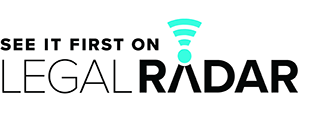Social Media Company Sues Facebook for 'Russia State-Controlled Media' Label
Maffick LLC claims Facebook falsely identified the social media company as state-controlled media, causing a 50% drop in monetization of its social media content.
July 30, 2020 at 04:45 PM
4 minute read
 Soapbox (Photo: Courtesy Photo)
Soapbox (Photo: Courtesy Photo)
Facebook's adventures in content moderation continue with a defamation lawsuit from a Los Angeles-based social media and e-commerce company that argues Facebook falsely labeled its channels as state-controlled media with ties to Russia.
In a complaint filed Wednesday in the U.S. District Court for the Northern District of California, Maffick LLC argues that Facebook threatened to shut down its three channels on the platform unless it posted a disclosure on all its accounts that Mafflick is "a brand of Maffick Media, which is owned and operated by Ruptly GmbH, a subsidiary of RT news," a Russian controlled news outlet. The complaint was surfaced on Law.com's Legal Radar.
The lawsuit comes in the wake of criticism from the public and the social media giant's own workforce that Facebook has not acted adequately to dispel misinformation surrounding President Donald Trump as well as the coronavirus pandemic.
The filing distinguishes Maffick LLC from Maffick Media, a defunct entity that was partially owned by American journalist Anissa Naouai and Ruptly. In July 2019, Naouai formed the entirely separate Maffick LLC, which is not affiliated with Ruptly or RT, according to the lawsuit.
"Facebook knows or should know that the notice is false and that Maffick is not operated or controlled, editorially or otherwise, by any Russian government entity or official," wrote Maffick's lawyers at TroyGould in Los Angeles. "At the very least, it knows that its public statement that Maffick is Russia-state controlled media is based on obsolete ownership information that requires further investigation. Facebook's statement that Maffick is Russia state-controlled media is therefore either an intentional falsehood or has been made with reckless disregard for its truth or falsity."
After Facebook did not respond to Maffick's assertions that it is not a state-controlled media outlet and that a disclosure would force it to disseminate false information, the company posted in May that it was "Affiliated with RT" on its politics channel Soapbox as a "temporary, stop-gap measure" to avoid the shutdown of its accounts, the company's lawyers wrote.
"Maffick's intention was to compromise, keep its Facebook pages operating, and engage in further dialogue with Facebook, so that it would not be required to post further inaccurate information on any of its pages," the complaint states.
On June 4, Facebook publicly announced its policy "to label media outlets that are wholly or partially under the editorial control of their government," as part of an effort to combat misinformation ahead of the November 2020 presidential election.
The next day, Facebook published a notice on the "Page Transparency" section of Maffick's accounts, that they were "Russia state-controlled media," according to the suit.
"In the first weeks since Facebook posted the Notice, Maffick's monetization of its social media content (through advertising, e-commerce and otherwise) is down 50% from its monthly average for 2020," the lawyers wrote. "Maffick's 'reach,' a metric that measures the number of people who encounter its social media content, is down 74% over the same time period."
Maffick contends users immediately responded to the notice with negative comments on its pages.
TroyGould's John Ulin said Facebook is trying to promote an image of a responsible social media company by identifying pages that are controlled by foreign governments.
"When it does that by falsely telling the world that social media pages run by Maffick, which is a U.S. company, are 'Russia state-controlled media,' that helps nobody and only creates confusion and distrust," Ulin said.
Maffick initially tried to resolve the dispute informally, and now, it has to take action to protect its reputation and its business, he said.
"We want people to know if the news they read on Facebook is coming from a publication we believe is under the control of a government and we've made public the criteria we use to make this determination," a Facebook spokesperson said in an email. "This lawsuit is without merit and we will defend ourselves vigorously."
The company is suing for defamation, intentional interference with contractual relations and prospective economic relations, negligent interference with prospective economic relations and violations of the Lanham Act and California's Unfair Competition Law.
 Keep up with the latest news and lawsuits in a free, personalized news feed on Law.com's Legal Radar. Track federal litigation and who's getting the work by industry, practice area, law firm, company and region.
Keep up with the latest news and lawsuits in a free, personalized news feed on Law.com's Legal Radar. Track federal litigation and who's getting the work by industry, practice area, law firm, company and region.
This content has been archived. It is available through our partners, LexisNexis® and Bloomberg Law.
To view this content, please continue to their sites.
Not a Lexis Subscriber?
Subscribe Now
Not a Bloomberg Law Subscriber?
Subscribe Now
NOT FOR REPRINT
© 2025 ALM Global, LLC, All Rights Reserved. Request academic re-use from www.copyright.com. All other uses, submit a request to [email protected]. For more information visit Asset & Logo Licensing.
You Might Like
View All

TikTok Opts Not to Take Section 230 Immunity Fight to U.S. Supreme Court
4 minute read
PayPal Faces New Round of Claims; This Time Alleging Its 'Honey' Browser Extension Cheated Consumers

Google Makes Appeal to Overturn Jury Verdict Branding the Play Store as an Illegal Monopoly
5 minute readTrending Stories
- 1State Bar Ethics Opinion Determines Texas Lawyers Can't Join a Firm With Non-Lawyer Partners
- 2'Don't Be Afraid:' AGs Push Against Trump's Immigration Policy
- 3State AG Hammers Homebuilder That Put $2,000-Per-day Non-Disparagement Penalty in Buyer Contracts
- 4Selendy Gay Files Lawsuit Challenging Trump's Workforce Reclassification EO
- 5Trump's DOJ Withdraws Opposition to Law Banning Trans Care for Minors
Who Got The Work
J. Brugh Lower of Gibbons has entered an appearance for industrial equipment supplier Devco Corporation in a pending trademark infringement lawsuit. The suit, accusing the defendant of selling knock-off Graco products, was filed Dec. 18 in New Jersey District Court by Rivkin Radler on behalf of Graco Inc. and Graco Minnesota. The case, assigned to U.S. District Judge Zahid N. Quraishi, is 3:24-cv-11294, Graco Inc. et al v. Devco Corporation.
Who Got The Work
Rebecca Maller-Stein and Kent A. Yalowitz of Arnold & Porter Kaye Scholer have entered their appearances for Hanaco Venture Capital and its executives, Lior Prosor and David Frankel, in a pending securities lawsuit. The action, filed on Dec. 24 in New York Southern District Court by Zell, Aron & Co. on behalf of Goldeneye Advisors, accuses the defendants of negligently and fraudulently managing the plaintiff's $1 million investment. The case, assigned to U.S. District Judge Vernon S. Broderick, is 1:24-cv-09918, Goldeneye Advisors, LLC v. Hanaco Venture Capital, Ltd. et al.
Who Got The Work
Attorneys from A&O Shearman has stepped in as defense counsel for Toronto-Dominion Bank and other defendants in a pending securities class action. The suit, filed Dec. 11 in New York Southern District Court by Bleichmar Fonti & Auld, accuses the defendants of concealing the bank's 'pervasive' deficiencies in regards to its compliance with the Bank Secrecy Act and the quality of its anti-money laundering controls. The case, assigned to U.S. District Judge Arun Subramanian, is 1:24-cv-09445, Gonzalez v. The Toronto-Dominion Bank et al.
Who Got The Work
Crown Castle International, a Pennsylvania company providing shared communications infrastructure, has turned to Luke D. Wolf of Gordon Rees Scully Mansukhani to fend off a pending breach-of-contract lawsuit. The court action, filed Nov. 25 in Michigan Eastern District Court by Hooper Hathaway PC on behalf of The Town Residences LLC, accuses Crown Castle of failing to transfer approximately $30,000 in utility payments from T-Mobile in breach of a roof-top lease and assignment agreement. The case, assigned to U.S. District Judge Susan K. Declercq, is 2:24-cv-13131, The Town Residences LLC v. T-Mobile US, Inc. et al.
Who Got The Work
Wilfred P. Coronato and Daniel M. Schwartz of McCarter & English have stepped in as defense counsel to Electrolux Home Products Inc. in a pending product liability lawsuit. The court action, filed Nov. 26 in New York Eastern District Court by Poulos Lopiccolo PC and Nagel Rice LLP on behalf of David Stern, alleges that the defendant's refrigerators’ drawers and shelving repeatedly break and fall apart within months after purchase. The case, assigned to U.S. District Judge Joan M. Azrack, is 2:24-cv-08204, Stern v. Electrolux Home Products, Inc.
Featured Firms
Law Offices of Gary Martin Hays & Associates, P.C.
(470) 294-1674
Law Offices of Mark E. Salomone
(857) 444-6468
Smith & Hassler
(713) 739-1250






